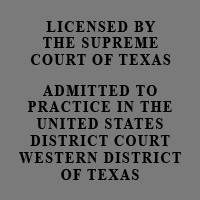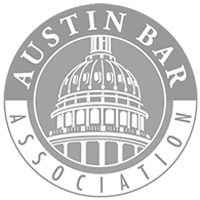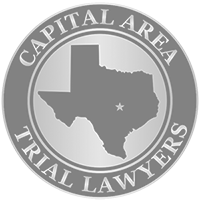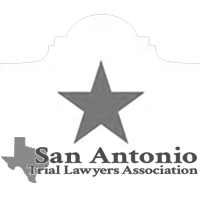Report Hospital Billing Fraud: Large Financial Rewards Are Being Offered to Medical Professionals That Properly Report Hospital Billing Fraud by Hospital Billing Fraud Whistleblower Lawyer Jason S. Coomer
Hospitals that commit billing fraud including upcoding, false coding, false certifications, double billing, phantom patients, and illegal kickbacks can be the basis of qui tam whistleblower reward lawsuits that offer large financial rewards to medical professionals that properly expose hospital billing fraud. Hospital administrators, benefit administrators, medical billing specialists, medical coding specialists, accountants, benefit specialists, facility coding supervisors, and other health care professionals are encouraged to contact a Hospital Billing Fraud Lawyer to confidentially review a potential whistleblower reward qui tam lawsuit.
If you are aware of a hospital that is committing billing fraud, please feel free to contact Hospital Billing Fraud Lawyer, Jason S. Coomer, via e-mail message or via our online submission form for a confidential review of a potential hospital billing fraud whistleblower reward lawsuit.
Being the First to File on Hospital Billing Fraud is Essential for Recovery Under the False Claims Act and Can Sometimes Prevent Potential Criminal Liability in Coding Fraud Scams, Reimbursement Fraud Scams, Compliance Fraud Scams, and Kickbacks
It is essential to not delay in coming forward with a Hospital Billing Fraud Qui Tam Whistleblower Action as the first whistleblower to file is eligible to be a relator and can make a large recovery for exposing the fraud. Additionally, when the fraudulent scheme is exposed, the people that kept the fraud secret can sometimes be found liable for criminal activity for not exposing the fraud that was being committed and be held liable for a continuing criminal activity.
Hospital Billing Fraud Whistleblower Lawsuits Include Upcoding Qui Tam Whistleblower Lawsuits and Coding Fraud Whistleblower Lawsuits
Upcoding occurs when a medical service provider intentionally and fraudulently upcodes services to obtain a higher reimbursement than one that is entitled to for the service that was actually provided. In both the Medicare and Medicaid systems a set of billing codes is used by healthcare providers to bill for services. These codes are known as the Healthcare Common Procedure Coding System (HCPCS). A service provider that intentionally uses a higher paying code to fraudulently reflect that a more expensive procedure or device was involved in the patient’s treatment than actually was used or was necessary. A pattern of intentional upcoding treatment can result in large profits for the healthcare provider, but also cost taxpayers millions of dollars.
Upcoding fraud is typically hard to catch without the help of persons with inside information because that Healthcare Common Procedure Coding System (HCPCS) codes are billed electronically and can easily slip through the system. Therefore unless the upcoding is caught through a random audit (approximately 2% of the claims per year are audited), it is up to insiders, informants, heroes, and health care professionals to catch fraudulent upcoding.
Another type of coding fraud is “unbundling”, where bundled related procedures or composite lab tests are run together, but billed separately by the lab or healthcare provider to obtain more compensation. These types of billing fraud also allow healthcare providers and labs to make higher profits by bilking Medicare, Medicaid, and taxpayers out of millions of dollars. These unbundling fraud schemes are also hard to detect without someone that is familiar with the codes and billing.
Hospital Billing Fraud and Other Forms of Health Care Fraud Are Costing The United States and U.S. Taxpayers About $100 Billion Each Year
Law enforcement authorities estimate that health-care fraud costs taxpayers about $100 billion each year. Through Health Care Fraud, Hospital Billing & Upcoding Fraud, Hospice Fraud, Off-Label Marketing Fraud, and Medicare Fraud Lawsuits billions of dollars have been recovered from individuals and organizations that have committed health care fraud on the United States Government and State Governments.
HEALTH CARE FRAUD CASE NETS RECOVERY OF $1.7 BILLION
HCA Inc. (formerly known as Columbia/HCA and HCA - The Healthcare Company) and HCA subsidiaries agreed to pay the United States over $1.7 Billion including $631 million in 2003 for civil penalties and damages arising from false claims the government alleged it submitted to Medicare and other federal health programs. In 2000, HCA subsidiaries pled guilty to substantial criminal conduct and paid more than $840 million in criminal fines, civil restitution and penalties. HCA will paid an additional $250 million to resolve overpayment claims arising from certain of its cost reporting practices. In total, the government will have recovered $1.7 billion from HCA.
This Qui Tam settlement resolved fraud allegations against HCA and HCA hospitals in nine False Claims Act qui tam or whistleblower lawsuits pending in federal court in the District of Columbia. Under the federal False Claims Act, private individuals may file suit on behalf of the United States and, if the case is successful, may recover a share of the proceeds for their efforts. Under the HCA settlement, the whistleblowers will receive a combined share of $151,591,500.00.
http://www.usdoj.gov/opa/pr/2003/June/03_civ_386.htm
New Jersey Hospital to Pay $6.35 Million to Resolve Allegations of Inflating Charges to Obtain Higher Medicare Reimbursement
"WASHINGTON—Robert Wood Johnson University Hospital Hamilton, a New Jersey-based hospital, has agreed to pay $6.35 million to settle allegations that the hospital defrauded Medicare, the Justice Department announced. Two lawsuits filed against the Hamilton, N.J., facility alleged that the hospital fraudulently inflated its charges to Medicare patients to obtain larger reimbursements from the federal health care program."
"In addition to its standard payment system, Medicare provides supplemental reimbursement, called “outlier payments,” to hospitals and other health care providers in cases where the cost of care is unusually high. Congress enacted the supplemental outlier payments system to ensure that hospitals have the incentive to treat inpatients whose care requires unusually high costs. The two lawsuits filed against Robert Wood Johnson University Hospital Hamilton alleged that the hospital inflated its charges to obtain supplemental outlier payments for cases that were not extraordinarily costly and for which outlier payments should not have been paid. The United States intervened in both lawsuits in January 2008."
“Taxpayer dollars should go towards quality health care, not wasted on fraud and abuse,” said Tony West, Assistant Attorney General for the Civil Division of the Department of Justice. “As the settlement announced today demonstrates, the Justice Department is committed to pursuing those who defraud Medicare and drive up the costs of health care.”
"The two lawsuits were brought under the qui tam, or whistleblower, provisions of the False Claims Act, which permit private citizens with knowledge of fraud against the government to bring an action on behalf of the United States and to share in any recovery. Under the civil settlement announced today, the whistleblowers will receive $1,111,250 of the total recovery."
“This office is determined to protect the integrity of the Medicare system for the citizens of New Jersey and of the United States,” said Paul J. Fishman, U.S. Attorney for the District of New Jersey."
"Assistant Attorney General West noted that today’s settlements was the result of a coordinated effort by the Justice Department’s Civil Division, the U.S. Attorney’s Office for the District of New Jersey, the Department of Health and Human Services Office of Inspector General and Centers for Medicare and Medicaid Services, and the Federal Bureau of Investigation."
"The cases are entitled United States ex rel. Peter Salvatori and Sara C. Iveson v. Robert Wood Johnson University Hospital at Hamilton, Case No.: 08-1265 (JAG) (D.N.J.), and United States ex rel. James Monahan v. Robert Wood Johnson University Hospital at Hamilton, Case No. 02-5702 (JAG) (D.N.J.)."
"This settlement is part of the government’s emphasis on combating health care fraud. One of the most powerful tools in that effort is the False Claims Act, which the Justice Department has used to recover approximately $2.3 billion since January 2009 in cases involving fraud against federal health care programs. The Justice Department’s total recoveries in False Claims Act cases since January 2009 have topped $3 billion. Since 2006, the United States has recovered more than $1.1 billion from hospitals that it alleged engaged in outlier fraud."
Hospital Billing Fraud Whistleblower Reward Lawsuits Are Based on The False Claims Act And Rewards Are Calculated On Recoveries That Are Obtained
The False Claims Act was enacted to encourage private citizens including hospital coding & billing administrators, nuring home administrators, hospice providers, accountants, hospital managers, and other health care administrators to assist the government in the fight against fraud. Since the enactment of the False Claims Act, several amendments have been made to the act to encourage more whistleblowers as well as to protect whistleblowers from potential retribution.
The 1986 Amendment defines a "claim" as: "...any request or demand which is made to a contractor, grantee, or other recipient if the United States Government provides any portion of the money or property which is requested or demanded, or if the government will reimburse such contractor, grantee, or other recipient for any portion of the money or property which is requested or demanded."
The whistleblower's share of recovery is a maximum of 30 percent. If the government took over the lawsuit, the relator can "continue as a party to the action." The defendant is also required to pay for the relator's attorney fees. The whistleblower is also protected from retaliatory actions by his or her employer. As a result of several amendments to the False Claims Act and the amount of Medicare fraud that is occuring, qui tam lawsuits increased dramatically. Though the amendment was first made fore corrupt defense contractors, the amendment has uncovered billions of dollars in health care fraud and the government is recooping billions each years as well is prosecuting those that are committing Medicare fraud.
Anyone who defrauds the government out of revenue can be held accountable under the False Claims Act. Common defendants include defense contractors, health care providers, other government contractors & subcontractors, state and local government agencies, and private universities. Whistleblowers often include current and former employees of the defrauding company, competitors of government contractors and public interest groups.
There are several types of Qui Tam claims covered under the False Claims Act:
-
Mischarging or overcharging for goods or services.
-
Improper price data and the request for payment for services never provided.
-
Holding government property for fraudulent purposes.
-
Avoiding payment of a debt to the government because of illegal reasons.
-
Knowingly providing the government with defective or dangerous products that were falsely certified.
-
Falsely certifying information for the entitlement of benefits.
-
Having any false claim paid by the government.
The mischarging case is the most common type of qui tam healthcare fraud case that is filed. Mischarging cases generally involve filing false claims for goods or services that were not provided or delivered. A common mischarging scenario is where a health care provider submits charges for patients that never required these procedures or if the patient did not qualify for certain medical services such as Hospice. Other common Qui Tam Healthcare Fraud Mischarging Schemes are claims made to the Government for medical services not rendered to a particular patient or for services performed by an attending physician when the service was actually performed by a nurse or other provider that should have been billed at a lower rate.
Originally, healthcare fraud was defined as deceptive means used by an organization to profit from government healthcare agreements. That definition has more recently been extended to include not only deception, but also unreasonable ignorance of the rules.
Healthcare fraud charges stem from the qui tam provision of the 1986 Federal False Claims Act, which allows citizens to file a suit on behalf of the federal government against anyone who has participated in government fraud. Many believe that one of the government’s primary motivations for passing this act was to uncover violations of healthcare contracts; indeed, healthcare fraud has accounted for more than half of all qui tam damages recovered since the act was passed.
Hospital Billing Fraud Whistleblowers Are Needed To Report Billing Fraud
It is extremely important that Hospital Billing Fraud Whistleblowers continue to expose fraudulent billing practices and unnecessary treatments that cost millions of dollars. If you are aware of Hospital Billing Fraud, Medical Coding Fraud, or other Medicare Fraud that is being committed by a hospital, hospice provider, nursing home, a government contract, or other health care provider, feel free to contact Texas Federal False Claims Act Whistleblower Lawyer Jason Coomer. As a Federal False Claims Act Whistle Blower Lawyer, he works with other powerful qui tam lawyers that handle large Health Care Fraud cases. He works with San Antonio Qui Tam Lawyers, Houston Medicare Fraud Whistleblower Lawyers, California Healthcare Fraud Lawyers, Dallas Defense Contractor Fraud Lawyers, and other Texas Medicare Fraud Whistleblower Lawyers as well as with Medicaid and State False Claim Act Whistleblower Lawyers throughout the United States and the World to blow the whistle on fraud that hurts the United States and taxpayers.
Hospital Billing Fraud Lawyer Jason Coomer Works With Medical Professionals and Other Health Care Whistleblower Lawyers To Expose Large Scale Health Care Fraud
If you are aware of Hospital Billing Fraud or other Health Care Fraud and are the original source with special knowledge of the fraud, please feel free to contact Hospital Billing Fraud Whistleblower Lawyer Jason Coomer via e-mail message or our use our submission form.
Feel Free to Contact Us with any Questions
Associations




